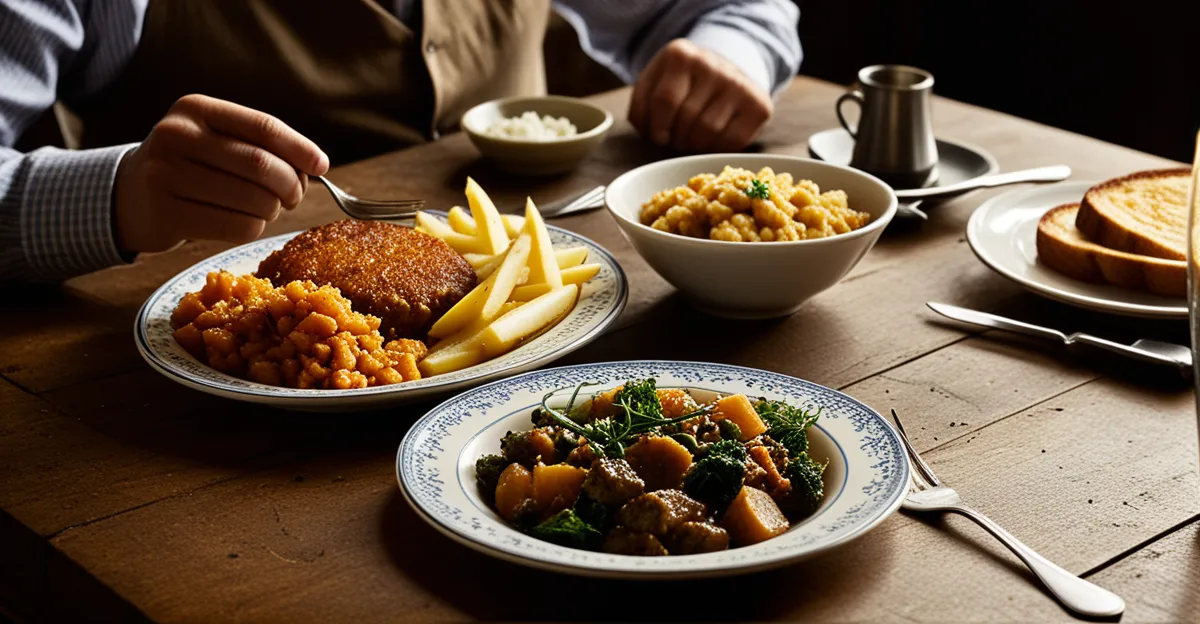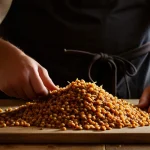Historical Background of the Sunday Roast
The origins of Sunday roast trace back to medieval England, where roasting meat over an open fire was a common cooking method. This practice reflected both available resources and evolving culinary techniques. During this period, families often prepared substantial meals on Sundays, aligning with religious observance and market days.
Following the Reformation, shifts in church attendance patterns influenced Sunday meal traditions. With changing religious practices in post-reformation England, more people spent longer periods at home on Sundays, fostering a communal atmosphere around meals. This environment encouraged the development of roast dinners as a regular, shared event.
In the same genre : What Are the Most Unique Ingredients in Traditional UK Cooking?
By the 18th and 19th centuries, the history of Sunday roast became linked strongly to British social customs. The meal became established as a weekly tradition, symbolising family unity and rest after the working week. Establishments like inns and households alike adopted the Sunday roast, helping to embed it in British Sunday roast history as a preferred dinner ritual. The regularity of this tradition has ensured its persistence into modern times as a distinctive cultural hallmark.
Cultural and Social Significance
The Sunday roast culture holds a cherished place in British food traditions, acting as more than just a meal—it’s a vital part of family dining customs. Central to British households, the Sunday roast fosters a sense of togetherness, inviting families to pause from their busy lives and share time around the table. This ritual strengthens bonds, creating memories that transcend generations.
Also to see : How Can Traditional British Recipes Inspire Modern Home Cooking?
Beyond intimate family settings, the tradition extends to community gatherings, where hospitality is emphasized. Sharing a Sunday roast often signifies warmth and welcome, reflecting broader social values embedded in British life. Across the UK, local customs and regional variations enrich this culture. For example, some areas incorporate seasonal vegetables or unique gravies, illustrating how the Sunday roast adapts to local tastes while preserving its core.
This cultural significance is why the Sunday roast continues to thrive as a symbol of British identity. It is both a communal event and a celebration of heritage within everyday life. Recognizing its social dimensions helps appreciate the enduring appeal of this classic meal in modern Britain.
Evolution into the Modern Sunday Roast
The modern Sunday roast reflects centuries of adaptation in both ingredients and customs. While the origins of Sunday roast began with simple roasted meats cooked over open flames, the Sunday roast evolution has introduced a wider variety of meats such as beef, lamb, chicken, and pork, alongside vegetarian alternatives. Preparation methods have diversified thanks to advances in kitchen technology, making the process more convenient without sacrificing traditional flavors.
Industrialization significantly influenced this tradition. As workweeks shifted from six to five days, Sundays remained a day of rest and family gathering, preserving the custom. Despite busier lifestyles, the Sunday roast customs endure as a moment for reunion and relaxation. This endurance stems partly from the meal’s adaptability: side dishes like roast potatoes, yorkshire pudding, and seasonal vegetables have become staples that cater to evolving tastes while honoring the past.
Ceremonial aspects have also evolved. From the carving of the meat at the table to the sharing of gravy and accompaniments, these rituals maintain the meal’s communal spirit. The continued focus on togetherness through the modern Sunday roast highlights its role as a flexible yet rooted tradition in British culture.






